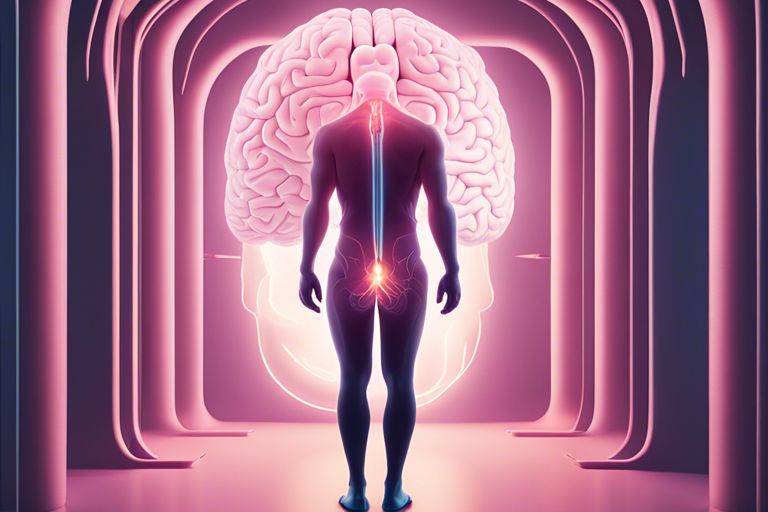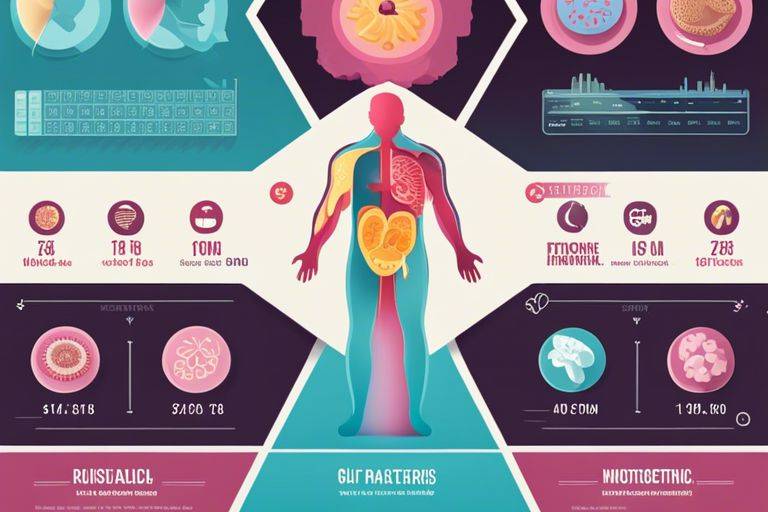Gut instincts have always been seen as mysterious forces guiding our decisions, but what if I told you that there’s more to it than just a feeling? The groundbreaking book “The Second Brain: The Scientific Basis of Gut Instinct and …” examines into the fascinating world of the gut-brain connection, revealing how our second brain in the gut influences not just digestion, but also emotions, mood, and even mental health. Join me as we explore the intricate web of neurons that make up this hidden intelligence within us.
Key Takeaways:
- Gut Microbiota: The gut houses trillions of bacteria that play a crucial role in digestion, immune function, and mental health.
- Microbiome Communication: The gut and the brain communicate bidirectionally through the gut-brain axis, impacting emotions, behavior, and cognitive functions.
- Emotional Influence: Gut health can influence emotions and mood, with the gut being called the “second brain” due to its impact on mental well-being.
- Diet and Gut Health: A healthy diet rich in fiber and diverse plant-based foods supports a balanced gut microbiota and overall mental health.
- Stress Management: Chronic stress can disrupt the gut-brain axis, leading to digestive issues and mental health problems, emphasizing the importance of stress management techniques.
- Probiotics and Prebiotics: Consuming probiotics and prebiotics can help support a healthy gut microbiota and improve mental health outcomes.
- Personalized Approaches: Understanding the mind-gut connection is important for personalized health approaches, highlighting the individuality of gut health and mental well-being.
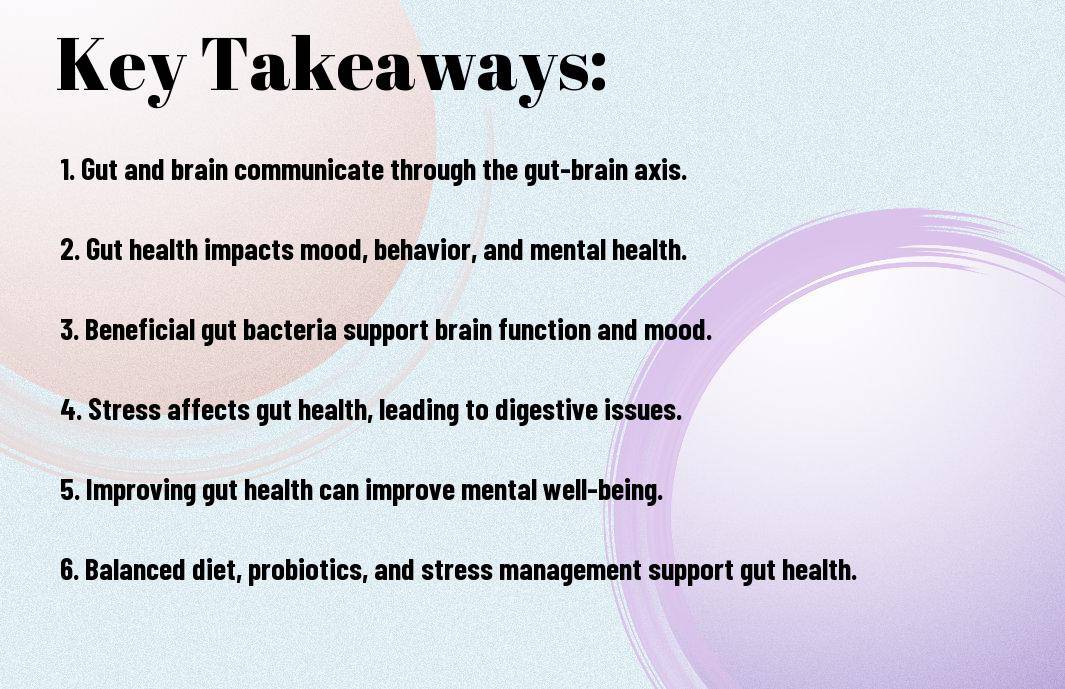
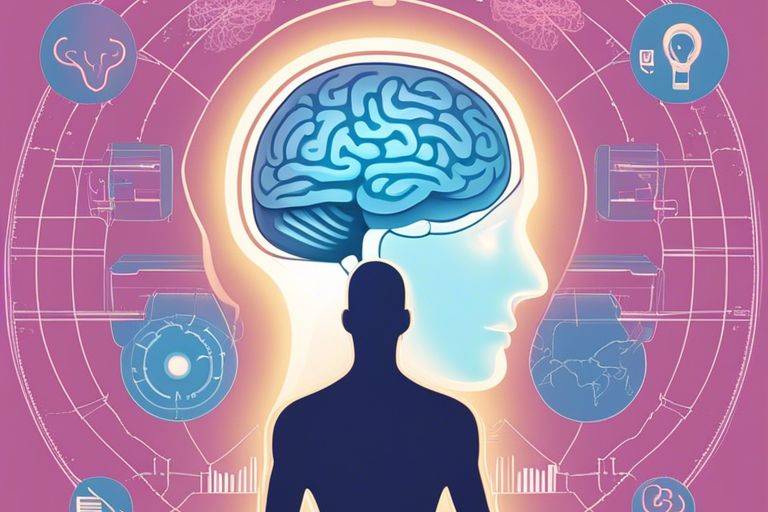
The Gut-Brain Axis
The Bidirectional Communication Highway
Your gut and brain are constantly communicating through the gut-brain axis, a complex network of nerves, hormones, and biochemical signaling pathways. Any disruption in this communication can lead to various health issues, including digestive problems, mood disorders, and even neurological conditions.
The Gut’s Influence on Brain Function
Guts play a crucial role in influencing brain function and behavior. Research has shown that the gut microbiota can produce neurotransmitters like serotonin and dopamine, affecting mood and cognitive function. Plus, the gut-brain axis can also impact stress responses, memory formation, and even mental health disorders.
The Enteric Nervous System
Assuming you are curious about the intricate connection between your mind and gut, the Enteric Nervous System (ENS) is a fascinating aspect to explore. According to What to Know About the Gut Brain Link, the ENS is often referred to as the “second brain” due to its complexity and ability to operate independently from the brain and spinal cord.
The Second Brain in Our Gut
Brain: The Enteric Nervous System, found in the lining of the gastrointestinal system, consists of over 100 million nerve cells influencing digestion and gut health.
The Gut’s Independent Thinking
Guts: To highlight the significance of the ENS, did you know that it can function autonomously, controlling the digestive process without involving the central nervous system? This autonomous operation enables quick reflexes like triggering vomiting or bowel movements without needing input from the brain.
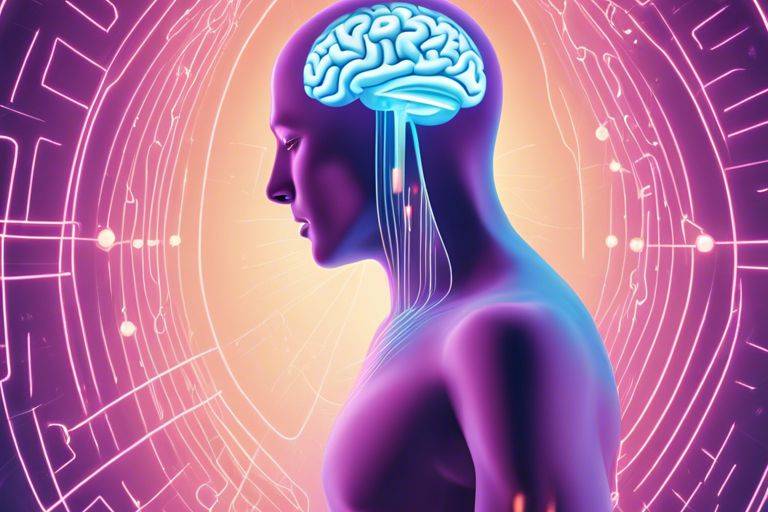
The Microbiome’s Role
The Trillions of Microorganisms Living Within
Role: Unlike other organs in your body, the gut is home to trillions of microorganisms that make up the microbiome. These bacteria play a crucial role in various bodily functions, including digestion, immune system health, and even mood regulation.
The Impact of Gut Bacteria on Brain Health
One: The gut-brain axis is a complex communication network connecting the gut and brain. Gut bacteria can influence brain health by producing neurotransmitters, such as serotonin and dopamine, affecting mood and cognition.
Another: Your gut bacteria can also produce inflammatory compounds that can cross the blood-brain barrier, leading to inflammation in the brain. This inflammation has been linked to conditions such as depression, anxiety, and even neurodegenerative diseases like Alzheimer’s.
The Gut-Feel Connection
Intuition and Instincts
GutFeel To truly understand the mind-gut connection, we must explore intuition and instincts. Have you ever had a “gut feeling” about something, an inexplicable knowing that guides you? Your gut plays a crucial role in these moments, signaling information to your brain that can’t be explained logically.
The Gut’s Role in Emotional Regulation
Regulation Your gut is not just responsible for digestion; it also plays a significant role in emotional regulation. When I say your gut is your “second brain,” I mean it. The gut contains millions of neurons that communicate with the brain, influencing your emotional state and responses to stress. This connection is so powerful that disruptions in gut health can lead to mood disorders and anxiety.
Role The gut-brain axis is bidirectional, meaning your emotional state can affect your gut health, and vice versa. When you’re stressed or anxious, your gut can become inflamed, affecting the balance of good bacteria and neurotransmitters. This imbalance can further impact your mood and cognitive functions, highlighting the vital role your gut plays in emotional well-being.
The Impact of Diet on Gut Health
Despite the often overlooked connection between what we eat and our gut health, diet plays a crucial role in maintaining a healthy gut. The foods we consume can either nourish or harm our gut microbiota, thereby affecting our overall well-being.
The Gut-Friendly Foods
An important aspect of maintaining a healthy gut is incorporating gut-friendly foods into your diet. These foods include high-fiber fruits and vegetables, fermented foods like yogurt and kimchi, and prebiotic-rich foods such as garlic and onions. By consuming these foods, you can promote the growth of beneficial bacteria in your gut, which can improve digestion and support overall health.
The Gut-Harming Foods
Regarding gut health, certain foods can be detrimental. Highly processed foods, sugary snacks, artificial sweeteners, and excessive alcohol can disrupt the balance of gut bacteria and contribute to inflammation in the digestive tract. By limiting these gut-harming foods in your diet, you can help maintain a healthy gut microbiome.
Foods that are high in artificial additives, trans fats, and refined sugars can have a detrimental impact on your gut health. These substances can negatively alter the composition of your gut microbiota, leading to digestive issues, inflammation, and an increased risk of chronic diseases. It’s important to be mindful of your food choices and prioritize whole, nutrient-dense foods to support a healthy gut.
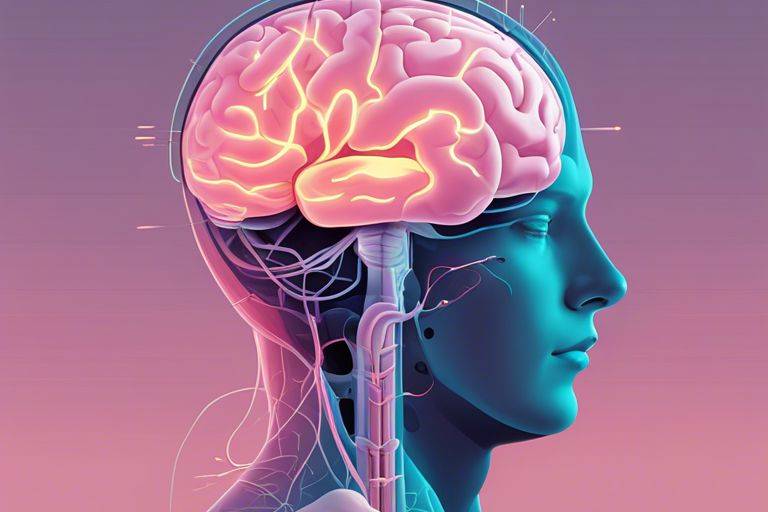
The Mind-Gut Connection in Practice
The Gut-Brain Axis in Everyday Life
Not only does the mind-gut connection influence your overall well-being, but it also plays a crucial role in everyday life. Your gut flora can impact your mood and stress levels, affecting decision-making and cognitive function.
The Implications for Mental Health
To probe into the implications for mental health, this connection is crucial. Your gut health can directly impact mental illnesses such as anxiety and depression.
Implications: Research has shown that a disrupted gut microbiome can lead to an increase in symptoms related to anxiety and depression. This highlights the importance of maintaining a healthy gut for better mental well-being.
Final Words
From above, it’s fascinating to uncover the complexities of the mind-gut connection and realize the profound impact it has on our overall well-being. As I probe deeper into this topic, I am reminded of the intricate systems within our bodies that work harmoniously to keep us healthy and in balance. Let us not overlook the importance of nurturing our gut health and paying attention to the signals our second brain sends us. By understanding and respecting this mind-gut connection, we can strive towards a healthier and more balanced life.
Q: What is the gut-brain connection?
A: The gut-brain connection refers to the bidirectional communication network between the gastrointestinal system (the gut) and the brain, involving various pathways such as the nervous system, immune system, and hormonal system.
Q: How does the gut communicate with the brain?
A: The gut communicates with the brain through the vagus nerve, which runs from the brainstem to the abdomen and plays a key role in transmitting signals and information between the gut and the brain.
Q: What role does the gut microbiome play in the gut-brain connection?
A: The gut microbiome, the community of microorganisms living in the gut, plays a significant role in the gut-brain connection by producing neurotransmitters, influencing inflammation, and interacting with the nervous system.
Q: How does the gut affect mental health?
A: The gut can affect mental health through the production of neurotransmitters like serotonin and dopamine, the regulation of inflammation, and the modulation of stress responses, all of which can impact mood and cognition.
Q: Can gut health impact cognitive function?
A: Yes, gut health can impact cognitive function through the gut-brain axis, as research suggests that imbalances in the gut microbiome or gastrointestinal disturbances may contribute to cognitive issues like brain fog, memory problems, and difficulty concentrating.
Q: What are some ways to improve gut health for better mental well-being?
A: To improve gut health for better mental well-being, you can focus on maintaining a balanced diet rich in fiber and fermented foods, managing stress levels, getting regular exercise, staying hydrated, and considering probiotic supplements.
Q: How can I tell if my gut health is affecting my mood or cognitive function?
A: Symptoms like digestive issues, changes in appetite, mood swings, anxiety, depression, brain fog, fatigue, and difficulty concentrating could indicate that your gut health is affecting your mood or cognitive function, and it may be beneficial to consult with a healthcare professional for guidance.
